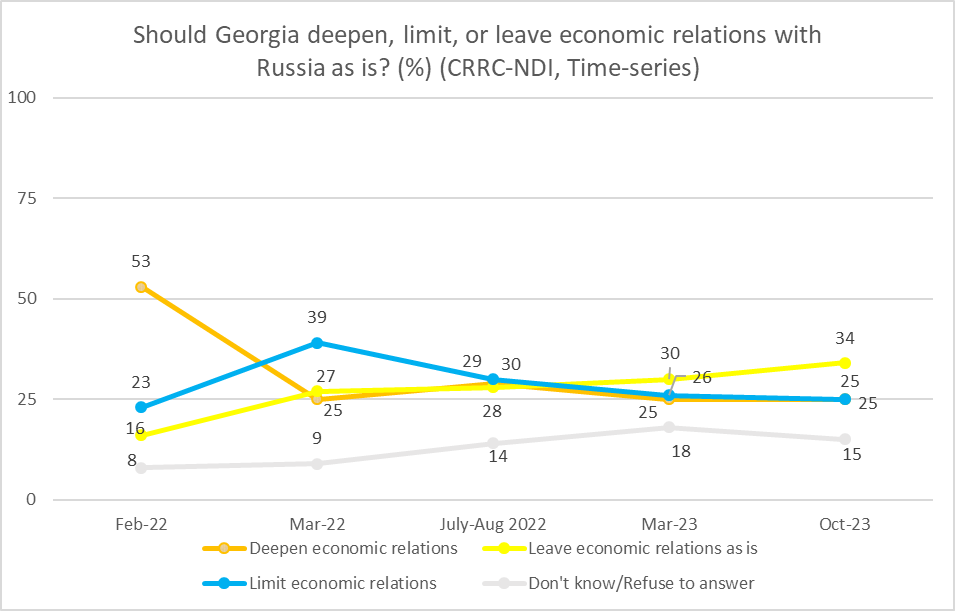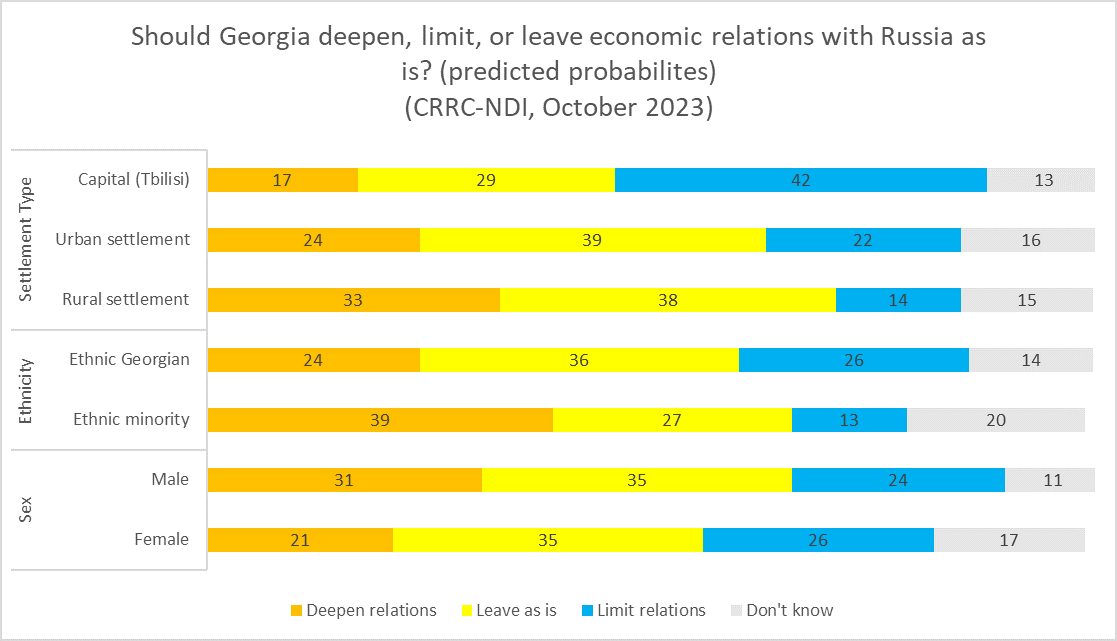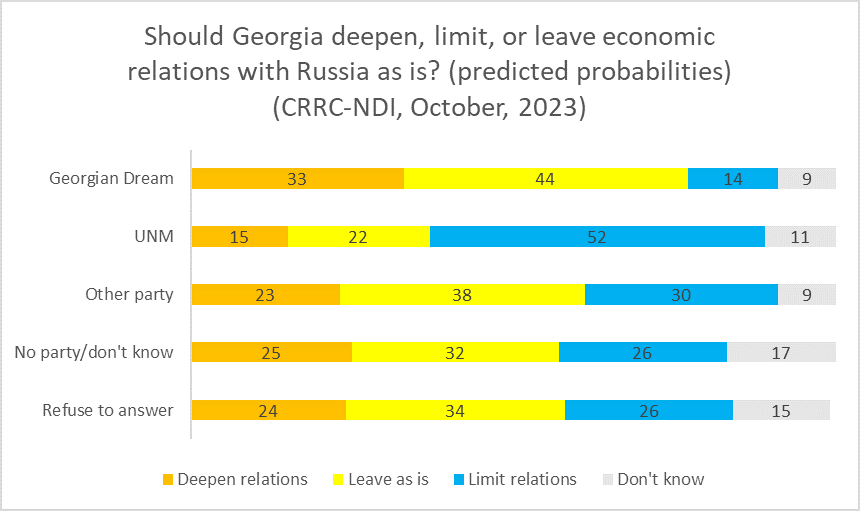
Despite significant negative public sentiment towards Russia’s relations to Georgia, a 2023 CRRC survey found that there were mixed opinions on Georgia’s economic ties to Russia.
In CRRC Georgia’s 2021 Caucasus Barometer Survey, 66% of Georgians surveyed identified Russia as the country’s main enemy. However, NDI and CRRC Georgia’s October 2023 survey data found that those surveyed had a variety of opinions on Georgia’s economic relations with Russia.
Georgian support for deepening economic relations with Russia reached a peak of 53% in February 2022, just before Russia’s invasion of Ukraine. A month later, in March 2022, support for the opposite — limiting economic relations — was at its highest at 39%. Since then, support for deepening relations has remained steady, while support for limiting relations has declined, with each position supported by a quarter of the surveyed public as of October 2023. At the same time, there has been an uptick in support for leaving relations as they stand, at 34%.

Opinions on how to manage Georgia’s economic relations with Russia vary with settlement type, ethnicity, and gender.
Tbilisi residents were 20 percentage points more likely to support the idea of limiting economic relations with Russia than those living in other urban settlements, and 28 points more likely than those in rural communities.
Ethnic minorities are 15 percentage points more likely to report the country should deepen economic relations with Russia, while men are 10 points more likely to support deepening economic relations with Russia than women.
The share in favour of maintaining relations as they stand tends to be stable amongst social and demographic groups, with 35-39% of the different demographic groups holding this view, controlling for other factors. The two exceptions to this pattern are Tbilisi residents, who as noted previously tend to believe that relations should be limited, and ethnic minorities, who are more likely to believe relations should deepen.

Aside from demographic factors, partisanship predicts attitudes towards Georgia’s economic ties with Russia.
The largest difference of opinions along party lines is between supporters of the ruling Georgian Dream party and the United National Movement (UNM). After controlling for other factors, supporters of the ruling party are twice (33%) as likely as UNM supporters (15%) to favour deeper economic relations with Russia. UNM supporters are also nearly four times as likely (52%) to think relations should be limited compared with Georgian Dream supporters (14%), controlling for other factors.

Georgian society is split on how the country’s economy should interact with Russia’s, and these differences of opinion vary substantially along social, demographic, and partisan lines.
Note: The analysis in this article makes use of multinomial regression analysis. The analysis included gender (male, female), age group (18-34, 35-54, and 55+), settlement type (capital, urban, rural), education (secondary/ secondary technical/ lower, and tertiary), ethnicity (ethnic Georgian, ethnic minority), employment (not employed, employed), a wealth index (0-10), and political party support (No party/don’t know/Georgian Dream, UNM, other party, and refuse to answer), as predictor variables.
This article was written by Milord Shengelia and Zachary Fabos, researchers at CRRC Georgia. The views presented in the article are the authors’ alone and do not necessarily represent the views of CRRC Georgia, or any related entity.








